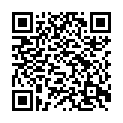|
Modulhandbuch [PDF]
(Aug 5 11:57:05 2025)
|
[Qualifikationsziele einblenden]
| ID |
Kurzbeschreibung | Qualifikationsziel | letzte Änderung |
| Q1 |
Wissenschaftliche Vorgehensweisen zur Fähigkeit von eigenständigen Beiträgen weiterentwickeln |
Die theoretisch-analytischen Fähigkeiten werden weiterentwickelt und tragen im Zusammenhang mit der Befähigung zur Erarbeitung wissenschaftlicher Publikationen zur Weiterentwicklung des Fachgebiets bei |
06.03.2022 |
|
| HQR-Bezug Qualifikationsziel Q1 |
|
Wissen und Verstehen |
Einsatz, Erzeugung und Anwendung von Wissen |
Kommunikation und Kooperation |
wissenschaftliches Selbstverständnis / Professionalität |
|
X |
X |
|
X |
| |
| Q2 |
Entwicklung einer teamfähigen und international respektierten Persönlichkeit |
Die Entwicklung einer selbstständigen, im internationalen Kontext sich sicher bewegenden Persönlichkeit trägt zum Tragen von Verantwortung in insbesondere interkulturellen Teams bei. |
06.03.2022 |
|
| HQR-Bezug Qualifikationsziel Q2 |
|
Wissen und Verstehen |
Einsatz, Erzeugung und Anwendung von Wissen |
Kommunikation und Kooperation |
wissenschaftliches Selbstverständnis / Professionalität |
|
|
|
X |
X |
| |
| Q3 |
Berücksichtigung unternehmerischer Aspekte beim Entwickeln technischer Lösungen |
Kommunikationsnetze werden unter komplexen technischen und organisatorischen Rahmenbedingungen entwickelt, in diesem Kontext optimieren Kommunikationsinformatiker (m/w/d) ihre Lösungen. |
06.03.2022 |
|
| HQR-Bezug Qualifikationsziel Q3 |
|
Wissen und Verstehen |
Einsatz, Erzeugung und Anwendung von Wissen |
Kommunikation und Kooperation |
wissenschaftliches Selbstverständnis / Professionalität |
|
|
X |
X |
|
| |
| Q4 |
Spezialkenntnisse in neuartigen Kommunikationssystemen erweitern |
Kommunikationssysteme werden unter einem gewaltigen Innovationsdruck stets schneller, intelligenter und effizienter. Das Einbringen von Spezialkenntnissen wird gefördert, um durch neue Lösungen weitere Möglichkeiten zu erschließen. |
06.03.2022 |
|
| HQR-Bezug Qualifikationsziel Q4 |
|
Wissen und Verstehen |
Einsatz, Erzeugung und Anwendung von Wissen |
Kommunikation und Kooperation |
wissenschaftliches Selbstverständnis / Professionalität |
|
X |
X |
|
X |
| |
|
[Lernergebnisse einblenden]
| ID |
Lernergebnis | Module |
| L1 |
Theoretisch-analytische Fertigkeiten |
| KIM-BK |
Berechenbarkeits- und Komplexitätstheorie |
| KIM-CE |
Cryptography Engineering |
| KIM-DE |
Data Engineering |
| KIM-DM |
Diskrete Mathematik |
| KIM-MT |
Master-Abschlussarbeit |
| KIM-SKKS |
Seminar komplexe Kommunikationsstrukturen |
| KIM-SKSY |
Seminar komplexe Kommunikationssysteme |
| KIM-SWKS |
Softwareentwicklung für Kommunikationssysteme |
| KIM-VAA |
Verteilte Algorithmen und Anwendungen |
|
| L2 |
Befähigung zu wissenschaftlicher Arbeit |
| KIM-BK |
Berechenbarkeits- und Komplexitätstheorie |
| KIM-CE |
Cryptography Engineering |
| KIM-DE |
Data Engineering |
| KIM-DM |
Diskrete Mathematik |
| KIM-MT |
Master-Abschlussarbeit |
| KIM-SKKS |
Seminar komplexe Kommunikationsstrukturen |
| KIM-SKSY |
Seminar komplexe Kommunikationssysteme |
| KIM-SWKS |
Softwareentwicklung für Kommunikationssysteme |
| KIM-VAA |
Verteilte Algorithmen und Anwendungen |
|
| L3 |
Abstraktes, analytisches, über den Einzelfall hinausgehendes und vernetztes Denken |
| KIM-AROB |
Anwendungsentwicklung für kollaborative Industrieroboter |
| KIM-BK |
Berechenbarkeits- und Komplexitätstheorie |
| KIM-CE |
Cryptography Engineering |
| KIM-DE |
Data Engineering |
| KIM-DM |
Diskrete Mathematik |
| KIM-MT |
Master-Abschlussarbeit |
| KIM-SKKS |
Seminar komplexe Kommunikationsstrukturen |
| KIM-SKSY |
Seminar komplexe Kommunikationssysteme |
| KIM-SWKS |
Softwareentwicklung für Kommunikationssysteme |
| KIM-VAA |
Verteilte Algorithmen und Anwendungen |
|
| L4 |
Vermittlung der Fähigkeit, sich schnell methodisch und systematisch in neue Themengebiete einzuarbeiten |
| KIM-AROB |
Anwendungsentwicklung für kollaborative Industrieroboter |
| KIM-BK |
Berechenbarkeits- und Komplexitätstheorie |
| KIM-CE |
Cryptography Engineering |
| KIM-DE |
Data Engineering |
| KIM-DM |
Diskrete Mathematik |
| KIM-MT |
Master-Abschlussarbeit |
| KIM-SKKS |
Seminar komplexe Kommunikationsstrukturen |
| KIM-SKSY |
Seminar komplexe Kommunikationssysteme |
| KIM-SWKS |
Softwareentwicklung für Kommunikationssysteme |
| KIM-VAA |
Verteilte Algorithmen und Anwendungen |
|
| L5 |
Förderung von Selbstständigkeit, Kreativität, Offenheit und Pluralität |
| KIM-ITR |
IT- und TK-Recht |
| KIM-MT |
Master-Abschlussarbeit |
| KIM-MOD |
Modellierungssprachen und Kommunikationssysteme |
| KIM-PU |
Personal- und Unternehmensführung |
| KIM-SKKS |
Seminar komplexe Kommunikationsstrukturen |
| KIM-SKSY |
Seminar komplexe Kommunikationssysteme |
| KIM-SWKS |
Softwareentwicklung für Kommunikationssysteme |
| KIM-VAA |
Verteilte Algorithmen und Anwendungen |
|
| L6 |
Förderung eines interkulturellen Bewusstseins und Befähigung zur Mitarbeit in multinationalen Arbeitsteams |
| KIM-APWS |
Advanced Presentation and Writing Skills for ICT Studies |
| KIM-CE |
Cryptography Engineering |
| KIM-MT |
Master-Abschlussarbeit |
| KIM-SKKS |
Seminar komplexe Kommunikationsstrukturen |
| KIM-SKSY |
Seminar komplexe Kommunikationssysteme |
|
| L7 |
Technische und organisatorische Rahmenbedingungen beim Entwurf von Kommunikationsnetzen anwenden können |
| KIM-DE |
Data Engineering |
| KIM-ITR |
IT- und TK-Recht |
| KIM-MT |
Master-Abschlussarbeit |
| KIM-MOD |
Modellierungssprachen und Kommunikationssysteme |
| KIM-PU |
Personal- und Unternehmensführung |
| KIM-SKKS |
Seminar komplexe Kommunikationsstrukturen |
| KIM-SKSY |
Seminar komplexe Kommunikationssysteme |
| KIM-SWKS |
Softwareentwicklung für Kommunikationssysteme |
| KIM-VAA |
Verteilte Algorithmen und Anwendungen |
|
| L8 |
Anwendung von Spezialkenntnissen in einem Teilgebiet |
| KIM-AROB |
Anwendungsentwicklung für kollaborative Industrieroboter |
| KIM-BK |
Berechenbarkeits- und Komplexitätstheorie |
| KIM-CE |
Cryptography Engineering |
| KIM-DE |
Data Engineering |
| KIM-DM |
Diskrete Mathematik |
| KIM-MT |
Master-Abschlussarbeit |
| KIM-MOD |
Modellierungssprachen und Kommunikationssysteme |
| KIM-SKKS |
Seminar komplexe Kommunikationsstrukturen |
| KIM-SKSY |
Seminar komplexe Kommunikationssysteme |
| KIM-SWKS |
Softwareentwicklung für Kommunikationssysteme |
| KIM-VAA |
Verteilte Algorithmen und Anwendungen |
|
| L9 |
Kenntnisse im Konfliktmanagement |
| KIM-MT |
Master-Abschlussarbeit |
| KIM-PU |
Personal- und Unternehmensführung |
| KIM-SKKS |
Seminar komplexe Kommunikationsstrukturen |
| KIM-SKSY |
Seminar komplexe Kommunikationssysteme |
|
| L10 |
Auswirkungen der Informatik auf die Gesellschaft in ihren sozialen, wirtschaftlichen, arbeitsorganisatorischen, psychologischen und rechtlichen Aspekten einschätzen können |
| KIM-ITR |
IT- und TK-Recht |
| KIM-MT |
Master-Abschlussarbeit |
| KIM-PU |
Personal- und Unternehmensführung |
| KIM-SKKS |
Seminar komplexe Kommunikationsstrukturen |
| KIM-SKSY |
Seminar komplexe Kommunikationssysteme |
|
|











